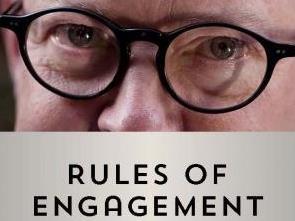Kim Williams is one of a select group of hugely talented people who have lost their job courtesy of Rupert Murdoch. But if you thirst for details of Williams’s departure from News Corp you will not find it here. Nor will you learn anything of the family life of Gough Whitlam’s son-in-law.
Rules of Engagement is not an autobiography although it offers many glimpses of the character and development of a man of whom Phillip Adams has said, ‘There is no one harder [to understand], more complex and contradictory in Australian public life than Kim Williams. I don’t even think that Kim understands his own complexities.’ What this book does offer is an extraordinary collection of essays – or monologues, if you like – intertwined and embellished with stories of personal experience.
The first chapter deals largely with the influence of Williams’s mother and the last chapter covers aspects of his health; both these chapters are more directly revealing and personal than much of the rest of the book.
The remaining thirteen chapters, however, are gems and can be – and perhaps should be – read when you are in the mood to listen and learn. The chapter on education mixes happy personal recollections of good teachers with a strong defence of the Gonski Report and bemoans that much is not as good in Australia as it used to be. That lament is repeated in some of the other chapters although Williams concedes that the ABC is perhaps a better organisation now than it was during the three years he worked there.
Williams is a talented musician and writes that ‘nothing affects the brain more pervasively than music’. Certainly his path from youth to maturity and from musician to all-round organiser, manager and achiever is due to his love and understanding of music and the opportunities it afforded him. Only near the end of the book does he acknowledge that perhaps being a workaholic, who put in 75 to 80 hours a week, may have contributed to his success. While his insights and comments range from good to awesome, Williams is arguably unaware of how much more talented an all-rounder he is than most.
This book is worth buying if you are an aspiring manager or wish to improve your management skills. The chapters ‘Leading and Managing’ and ‘Listening Intently’ should be compulsory reading for any Master of Business Administration student, while if you are a lover of cinema and television, the chapters ‘Cinema Cuts’ and ‘Episodes from Television’ will more than repay you for the cost of this book.
One delightful and unusual aspect of this book is that many chapters end with fascinating lists. For example, the chapter ‘Sporting Yards’ closes with lists of ten favourite athletes, ten favourite team sports players and ten favourite Australian coaches. The lists at the end of ‘Reading and Renewal’ are themselves inspirational.
Rules of Engagement is a book that offers intriguing glimpses of the author’s character and development. Williams is clearly a man of many talents and diverse achievements, a man with many friendships and quite a few enemies. It is a book worth reading for the insights it gives into a range of important issues and for what you could learn. And if you like a drink, pour yourself a glass to enjoy the chapter ‘A Taste of Wine’.
Rating: 4 out of 5 stars
Rules of Engagement by Kim Williams
Melbourne University Publishing Limited
Hardback
322 pages
RRP: $44.99
ISBN: 9780522866933






